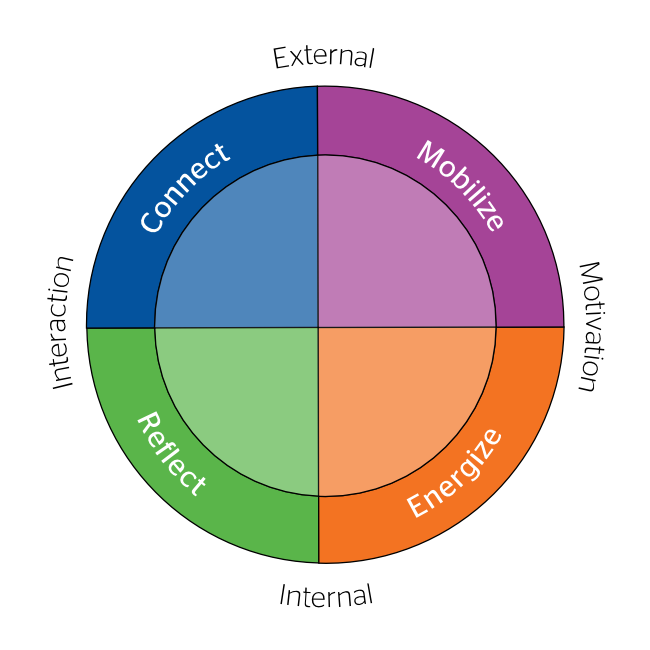A lot of people ask me if they should take the CliftonStrengths assessment again. Maybe it’s because the assessment is now called CliftonStrengths and you’re confused whether it’s the same thing as StrengthsFinder (answer: it’s the same thing, just a new name.) Or maybe your life circumstances are different than they were when you first took the assessment. If you’re wondering whether you should take the assessment again, the short answer is no.
This isn’t because it will produce a bad result, because it won’t. It just won’t be quite as accurate. The first time we take the assessment, we really don’t know what to expect. It’s all new to us. The assessment tool gives us 20 seconds to respond to each of these two statements that are paired together so that we respond quickly with our gut reaction. It’s intentionally designed that way because some of us are overthinkers.
Why You Shouldn’t Take the CliftonStrengths Assessment Again
Those of us who tend to overthink spend a lot of time thinking, analyzing and determining what we’d do in certain situations. As soon as you get started taking the assessment, you learn that you have to respond quickly and with your gut reaction. That way, the result comes from deep within. It’s an immediate response and reflects how you naturally feel and think.
We also have unconscious memory. So the first time we take the assessment it’s a bit of a new thing to us, and we are responding with our guts. The second time we take it, our subconscious memory might recall the format of the questions.
Our subconscious memory may even allows us to remember our prior results or first set of results and pick out one or two talents that may not feel as relevant to us (or maybe don’t yet feel that we like as much.) Once we take the assessment that first time, we have our results. We can take it again but the results will generally shift only a little bit, if at all. So there’s not a great amount of value in taking it again.
Again, the first time we take it, it’s going to be the most accurate.
Your Brain Wiring Doesn’t Change
Some of the people I speak with who contemplate taking the assessment again say that they have changed in terms of their lifestyle and thought process. I agree that you may be different from who you were in the past given what you’ve been through in life, at various times. However, your brain wiring doesn’t change.
The structure of the brain, the neural connections, and synapses don’t alter. What alters is the environment that we’re operating in and the additional perspective that we gain, so that we draw on certain talents at any moment, some more than others.
We have the same natural talents throughout our life, and they don’t change. Now, in full disclosure, it is possible for the brain to be changed. Those who suffer traumatic brain injury or horrific trauma may experience a shift in their brain wiring. It just makes sense because if we damage a part of our brains, other parts will attempt to compensate for that in order for us to survive. But most of us don’t experience traumatic brain injury. We just grow up, experience new things and gain new perspectives. You may think that changes who you are, but in terms of your brain wiring, it doesn’t. Your awareness, perspectives and priorities may change, but your brain wiring doesn’t.
Focus on Your Top 10 Strengths
It may be that you feel you would be better served at a given point in your life to take the CliftonStrengths assessment again, but I strongly recommend against it. I also recommend that you get to know your top five talents. And even better, if you have access to all 34 of them, review your top 10 because they truly represent the vast majority of who you are.
Through conversation, we can delve deeper into those. I know that when I took the assessment the first time, I didn’t like one of my talents. I didn’t like Activator because one of the cautions about Activator is that may result in being somewhat impatient. Well, that’s true. It hit the nail on the head. I didn’t really like that. But I didn’t bother to pay attention to what’s good about being an Activator because I was responding to what I sort of didn’t like.
When we’re growing up and beginning to evolve into the people we become, we’re operating on raw talent. Our goal is to evolve our talents into strengths. Also, to let them demonstrate the potential that they have for use in our lives. The way we do that is to lean into them.
First to become aware of them by taking the CliftonStrengths assessment. Second is by acquiring skills related that relate to that talent by acquiring knowledge about the talent. Ask yourself a few questions like: How does talent feel to me? What fits and what doesn’t seem to fit? What’s it look like in other people? Do I ever get myself into trouble with this? When is it the most powerful for me?
Start putting your strengths to work and considering them as you’re interacting with other people and when you’re considering a task that seems to be interesting. Realize that the more do you do this work, it’s aligning you with the things you’re naturally gifted at.
I’ll be honest, now that I’ve done that, I love my talents in the exact order they came out in the first assessment and it feels natural to be who I am. You can do that too.

